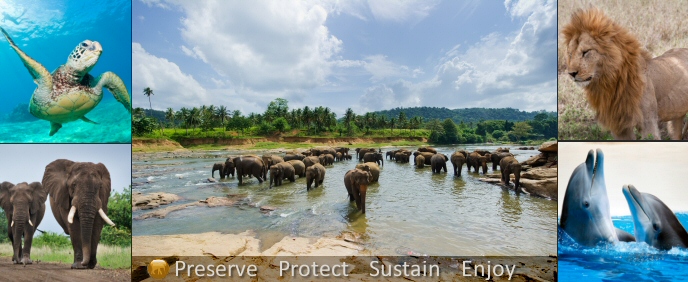
Eco Tours in Borneo - Sustainable Tourism & Conservation Laws
The third largest island in the world, Borneo has a very healthy and active Ecotourism industry. On Borneo, this industry is in greater conflict with existing industries than in other parts of the world, due primarily to the competing logging interests on the island. Borneo is expected to have lost up to 75% of its forests by 2020 due to these competing interests, however there are a number of measures being put in place to prevent this from happening. One of the largest issues facing Ecotourism on the island of Borneo is simply the fact that it is overseen by three distinct countries, and these countries sometimes have conflicting ideas over how the entire island should develop over time.
The country with the least involved environmental policies on the island is the country of Brunei. Literally taking up a very tiny corner of the island, Brunei is only in the beginning stages of creating any environmental laws, especially as they relate to tourism. Recently, the government of Brunei has been working on drafts for three separate environmental laws: the Environmental Pollution Control Order, Environmental Impact Assessment Order, and another as-yet unnamed law that covers the import and export of hazardous wastes for disposal. These laws are still in their early stages of development, and are still at a point where the language to be used in the laws themselves is under debate.
Conversely, Malaysia has a number of laws on the books to protect the wildlife and natural environment of its various land holdings. For example, the Malaysian Wildlife Law contains provisions that aid in the protection and conservation of all Malaysian wildlife and their respective habitats. This law doesn't just protect the endangered or endemic wildlife of Malaysia, but offers various levels of protection for different classifications of wildlife. The two Malaysian states on Borneo-- Sabah and Sarawak-- are bound by the federal mandate and also have enacted their own biodiversity protection laws that are more tailored to suit the needs of industry on Borneo.
The laws of Indonesia in regard to the environment generally mirror those of Malaysia, with a strong emphasis on resource management and Ecotourism. Two major laws-- the Law on Environmental Protection and Management, and the Act on the Conservation of Biological Resources and their Ecosystems-- lay down the greatest amount of regulation in regard to conservation and Ecotourism management. These laws have created a framework for how Ecotourism is developed throughout the Indonesia controlled part of Borneo by placing strict regulations down for how tourists interact with wildlife, and by creating regulations for how environmental impact statements must be prepared for Ecotourism operations.
Borneo is a haven for biodiversity, with two of the most bio-diverse ecosystems on Earth to its credit. Not only can tourists visit the last few vestiges of lush, virgin forest, but they can also visit some of the most pristine reefs in the Pacific. Snorkeling and SCUBA are some of the most popular activities here for tourists, creating a tourism boom for the nations that control the reef-bearing northern end of the island. Volunteer tourism is also very popular here, with a number of scientific studies going on at any time that people are able to volunteer to assist with. In the interior, there are a number of major trekking routes that are very popular with tourists, and along the border zones there is a unique spirit of cooperation between the three major countries. Each of the countries that control Borneo have empowered local villages to handle inter-border travel with tourists to help make tourism much more attractive and accessible in the area.
Borneo is home to some of the most famous endemic species of animals on the planet. It is a lush and vibrant ecosystem that is still working through how to balance the competing interests of forestry and tourism. All of the laws that deal with tourism and forestry recognize them both as contributing interests to the overall economies of the nations which inhabit Borneo, and therefore provisions of all laws must be in place that protect them both. With the two largest interests on the island having a very solid framework for responsible management practices, there is little doubt that Brunei will follow suit.

